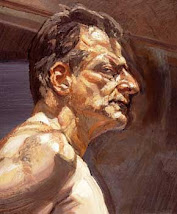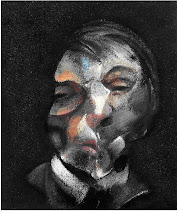(La traducción al inglés es de Rae Dalven.)
Mother with your nine sons and your only daughter,
your daughter dear, and only, and much beloved,
twelve years you had her and the sun never saw her;
you washed her in the sahdow, you combed her in the dark,
by evening star and morning star you curled her hair.
When form Babylon they brought you marriage offers
to marry her afar, in very distant foreign lands...
Eight brothers were against it, but Constantine agreed:
"Give her in marriage, Mother, let Arete go to foreign lands.
Then when to foreign lands I travel, to foreigns lands I go,
I will find refuge, a little house to stay."
"Constantine you are a wise, but now your words are foolish,
for if death, my son, should visit me, or wasting disease,
sorrow or joy should come, who will bring her home?"
God he made his guaranto, the saints his witnesses,
if death or illness should befall,
come weal or woe, he'd bring her home.
And when in a foreign land Arete was wedded
a lean year came and angry months,
and plague followed and the nine brothers died.
The mother found herself alone, a single stalk in the field.
Over the eight graves she beat her breast, she mourned,
at the grave of Constantine she lifted the tombstone:
"Constantine arise! I must have my Arete!...
God you made your guarantor, the saints your witnesses,
come weal or woe, you would bring her home."
Her prayer raised him from the coffin!
He made the clouds his horse, the stars his bladric,
the mood his companion, and he went to bring her:
"Come, my little Arete, for our mother needs you."
"Woe is me, brother dear, why at this hour!
If it is for joy, I shall wear my gold,
and if it is for sorrow, tell me, and I will come as I am."
"Come, my little Arete, come as you are."...
On the road they traveled, the road they walked,
they heard birds singing, they heard birds saying:
"How strange to see a dead man lead a fair live maid!"
"Hearken, my Constantine, to what the birds are saying:
'How strange to see a dead man lead a fair live maid!'"
"They are witless birds, let them chatter,
they are foolish birds, let them talk."
And as they go farther, other birds took up the cry:
"What do we birds see to our sorrow!
the linving walking hand in hand with the dead!"
"Do you hear, my Constantine, what the birds are saying?
'How the living are walking hand in hand with the dead!'"
"They are fledglings, let them chatter,
they are fledglings, let them prate."
"O brother dear, you freighten me, your breath is incense -laden!"
"Last night when we went to the church of St. John,
the priest sprinkle incense with liberal hands..."
And as they went farther, other birds took up the cry:
"Almighty God, what wonders you endlessly perform,
to let a dead man lead such a fair and graceful girl!"
Once more Arete heard it and her spirits sank:
"Do you hear, my Constantine, what the birds are saying?
Tell me, where is your hair, your manly moustache?"
"I suffered from a fever, that brought me close to death,
my blonde hair fell out and my manly moustache."
They found the house locked, securely bolted,
and the windows of the house thick with cobwebs:
"Unbar the door, dear Mother, your Arete is here!"
"Go if you are Death, I have no sons for you,
and Arete dwells afar in a land of strangers."
"Unbar the door, dear Mother, it is I, your Constantine.
God I made my guarantor, the saints my witnesses,
come weal or woe, I'd lead her back to you!"...
Before she could unbar the door, Death had stepped inside.


















No hay comentarios:
Publicar un comentario